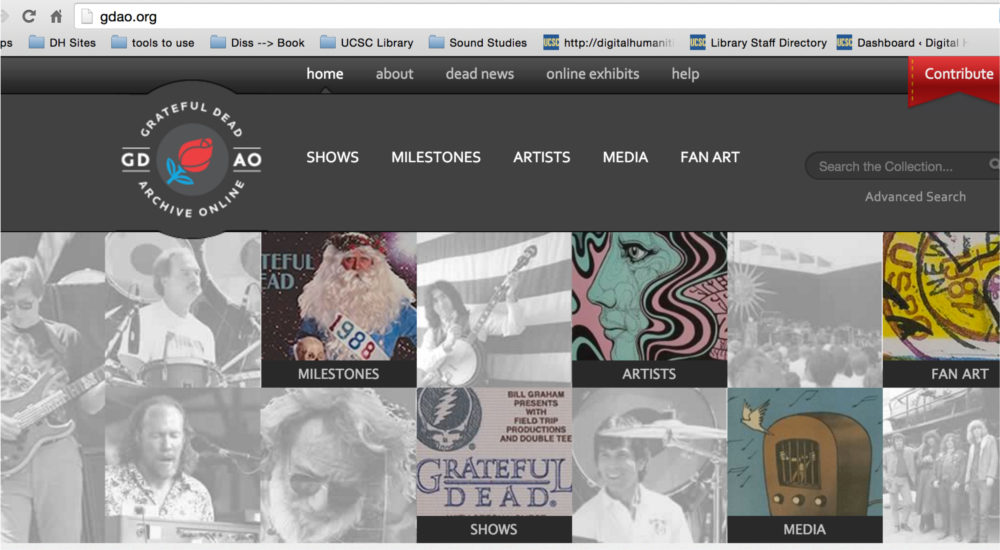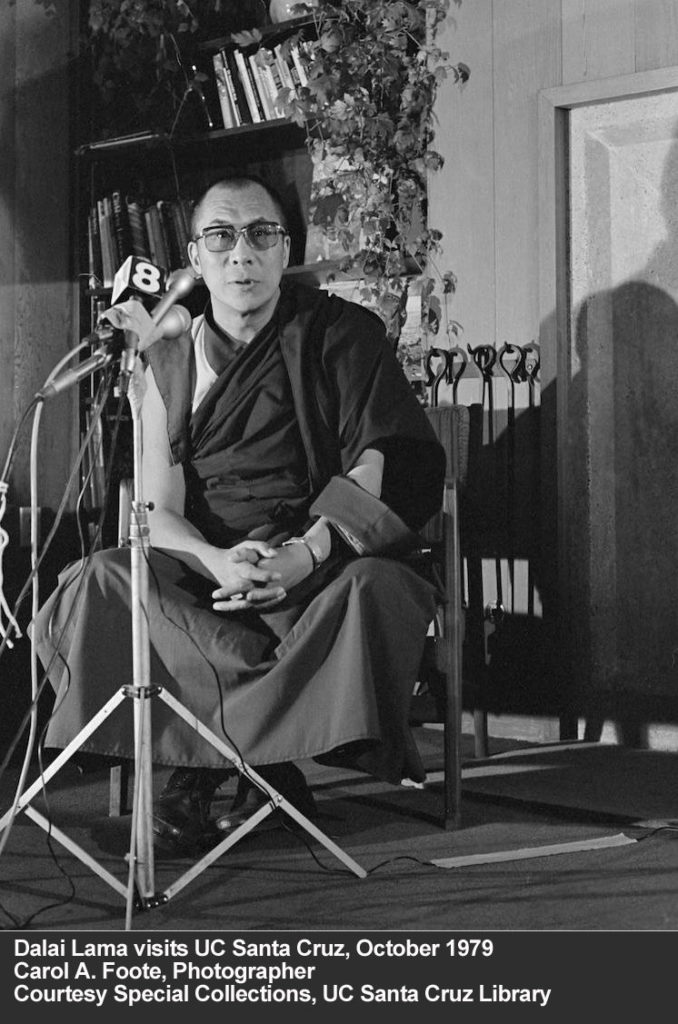By Susan Chesley Perry, Head of Digital Initiatives, University Library, UC Santa Cruz. As Library Collections and services increasingly move online, the lines between traditional library and IT roles are starting to blur. This past summer, during the UC Computing Services Conference held at UC Santa Cruz, staff at the University Library had a chance to show off materials from the Grateful Dead Archive Online and the new Digital Scholarship Commons, two projects that are exemplars of these blurred lines.
Library Digital Initiatives is the unit at UCSC that digitizes the photos, publications, audio, video, maps, artwork, and other materials from the archives. We also manage the data and files that result from all that digitization, which is now getting close to 500,000 files. In addition, we make sure the files and metadata are preserved for the long term.
The library application developer and the digital project librarians support and develop the application layer for the systems that serve up the content to the public. The Grateful Dead Archive Online and the library digital exhibits site are both built in Omeka, an open source content management system specifically meant to work with cultural heritage objects held by libraries and museums.
Within the library, we work with Special Collection librarians and archivists who select materials for scanning and create inventories of those photos, negatives, and other materials. They are the lucky folks who get to open the boxes and dig through the treasures of the archives. We also work with metadata librarians who create the records and add subject terms. They assure those materials are described in consistent ways using standardized terms so they can be incorporated in larger projects and collections such as the Online Archive of California and the Digital Public Library of America.
Library IT staff manage the servers and infrastructure that support all these activities. They administer the hardware, file servers, network, integrated library system, Omeka, and the other software that bring these collections to the web and make them accessible to the public. They also work with designers to create themes and styles for the Omeka sites. The library has received three Institute of Museum and Library Services grants in support of our digital exhibits, and the work of ITS staff has been a large part of the success of those grant proposals.
Looking forward, the library and IT teams are planning to take the expertise we’ve gained with digitization, digital collections, Omeka, and digital storytelling and share it with instructors and researchers on campus looking to use these tools and pedagogies in the classroom. The Digital Scholarship Commons was created to bring expert staff across the campus together with equipment and software available for students to build digital projects. We started with a lab and an Omeka hosting service, but have moved to supporting assignments in a variety of platforms, including SCALAR and iMovie. We’ve found that library and IT teams can leverage our particular expertise and experience, and work as partners with researchers and instructors to facilitate new forms of digital scholarship.


